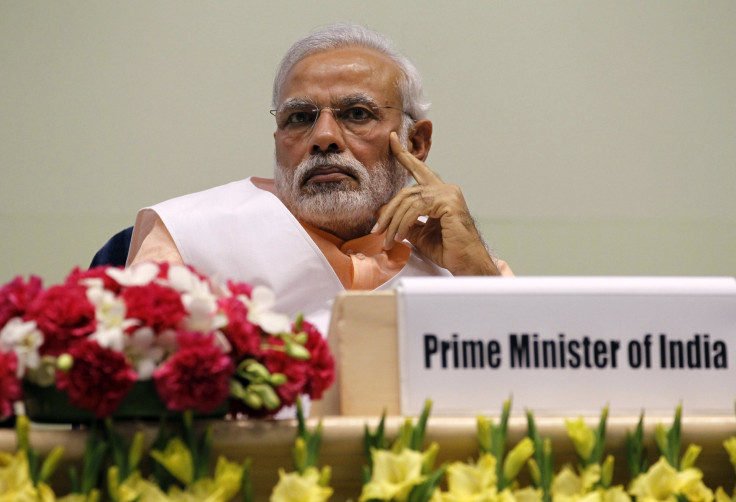Narendra Modi Attacks Congress In Lok Sabha Speech: What Is 'Mnrega' And Why Is It The Party's Failure?

India’s Prime Minister Narendra Modi tore down the opposition Congress party Friday for incompetence in a statement to lawmakers. He was responding to President Pranab Mukherjee’s budget speech in a discussion known as a “Motion of Thanks” that typically follows a president’s address.
“Mnrega is the epitome of Congress' failure,” Modi, leader of the ruling Bharatiya Janata Party, said in a speech to the Lok Sabha, the lower house of parliament, according to Indian site Zee News. “My political sense says never end Mnrega, because it is a reminder of your [Congress'] failure.”
What is the Mnrega, and why was Modi so opposed to it?
Modi said the scheme aimed at helping the rural poor, known as the Mahatma Gandhi National Rural Employment Guarantee Act, usually abbreviated as Mgnrega, Mnrega or Nrega, had drained the country’s coffers and was ineffective.
"Why would I scrap Mnrega? I want that scheme to remain so that the world could see what India has done after so many years," said Modi, according to India Today, as Congress President Sonia Gandhi sat in the audience.
Mnrega is a labor law that guaranteed at least 100 days of wage employment to every household whose adult members volunteered to do unskilled manual work. The law came into force in 200 districts in February 2006 and covered all of India in April 2008. It was hailed by the Ministry of Rural Development as the “largest and most ambitious social security and public works program in the world” in a circular issued in 2012.
Modi had long opposed the law as costly and inefficient, and sought to restrict its coverage to the country’s poorest 200 districts in October last year. A group of India’s leading economists opposed Modi’s move, saying the law had brought work to millions of impoverished villagers. They sent an open letter to Modi urging the government not to restrict or dilute the program, according to Reuters.
"For the first time, the central government is imposing caps on Nrega expenditure on state governments, undermining the principle of work on demand," said the letter, available on India news site NDTV. "Wages have been frozen in real terms, and long delays in wage payments have further reduced their real value. The act's initial provisions for compensation in the event of delayed payments have been removed."
In his speech, Modi said he had inherited a host of problems from Congress when he took office last May, according to NDTV. He told Congress that if they truly wanted to help the rural poor, they should not be unnecessarily politicizing bills aimed at helping them. "[Congress] wanted to contest the elections by using the Land Acquisition [Act] to their advantage, but they lost. If the farmers had liked the act, the Congress would have won the elections,” Modi said, pointing out the BJP's landslide victory last year and that Congress did not win a single seat in the recent New Delhi local elections. "History is a witness. Congress never lost with such a margin," Modi said, according to India Today.
© Copyright IBTimes 2024. All rights reserved.






















